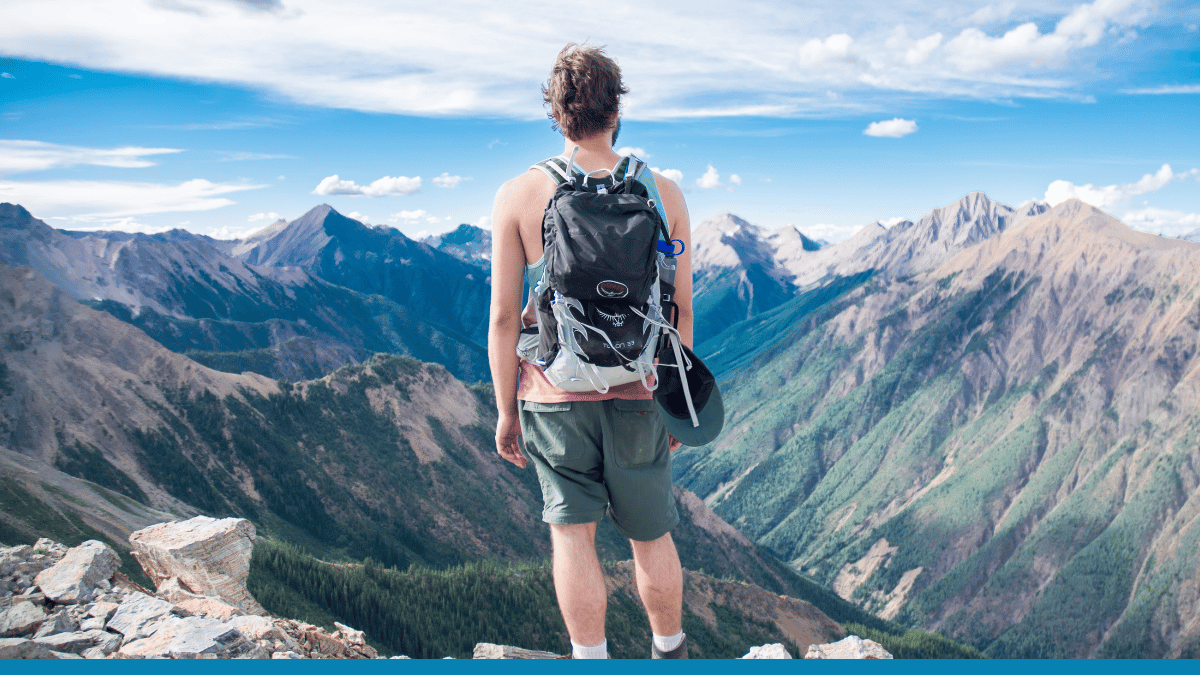High Altitude Training in Denver: Unlocking the Benefits
Denver’s elevation isn’t just a fun fact, it’s a built-in advantage for anyone serious about improving their fitness. At over 5,000 feet above sea level, the thinner air challenges your body in ways that lead to real, lasting gains in performance, endurance, and recovery.
Whether you're crushing trail runs, working on your conditioning in the gym, or simply staying active in Colorado’s great outdoors, altitude training can help you train more efficiently and get more from every workout. And with a smart approach, it can be your secret weapon for reaching the next level. That’s why so many athletes and everyday adventurers turn to personal training in Denver to help them unlock the full benefits of high-altitude workouts.
Meet our Denver
Personal Trainers
TL;DR: Training in Denver’s high elevation pushes your body to adapt to lower oxygen levels, leading to better endurance, increased red blood cell production, stronger lungs, and improved metabolic function. Benefits include enhanced cardiovascular health, mental toughness, and a boosted metabolism all of which improve athletic performance and everyday fitness. Top spots like Manitou Incline, Challenge Hill, and Denver’s foothills offer ideal training environments. To stay safe, ease in gradually, hydrate well, watch for altitude sickness, and recover intentionally. Fight Gravity Fitness helps athletes of all levels train smarter at elevation with personalized coaching tailored for Denver’s unique challenges.
Also Read:
Why Altitude Training Works: A Quick Science Snapshot
When you exercise at elevation, your body is forced to adapt to an environment with lower oxygen availability. That triggers several key physiological changes:
More red blood cells – Your body produces more to transport limited oxygen more efficiently.
Improved breathing mechanics – You learn to utilize each breath more effectively.
Greater aerobic capacity – Your VO₂ max improves, meaning you can perform longer with less fatigue.
Increased muscle efficiency – Your muscles become better at extracting and using oxygen.
The result? Stronger lungs, better endurance, and performance improvements that carry over even when you're not training at elevation.
Benefits of High Altitude Training
1. Enhanced Oxygen Efficiency
Training in a lower-oxygen environment stimulates your body to create more red blood cells, improving oxygen delivery throughout your system. This becomes a huge advantage not just for athletes but for anyone who wants better energy, focus, and stamina in daily life.
2. Improved Cardiovascular Function
Your heart and lungs have to work harder at elevation, which improves heart rate regulation, blood circulation, and overall Cardiovascular resilience. Over time, this means stronger workouts and improved recovery.
3. Boosted Metabolism
At altitude, your body requires more energy to function—this naturally increases your resting metabolic rate. For those with fat loss goals, high altitude training can be an effective tool when paired with proper nutrition and strength training.
4. Greater Mental Toughness
Training in a challenging environment builds mental resilience. Pushing through the discomfort of elevation, muscle fatigue, and breathlessness builds the kind of discipline that elevates every part of your fitness journey.
“Training at altitude isn’t about going harder, it’s about becoming more efficient, more adaptable, and mentally unshakable.”
Top Places Near Denver for High Altitude Training
Colorado offers the perfect training grounds for both beginner and advanced athletes. Here are some of the best local spots for altitude-focused workouts:
1. Manitou Incline – Manitou Springs
Not for the faint of heart, this legendary climb includes 2,744 steps and nearly 2,000 feet of vertical gain in under a mile. It’s one of the most intense cardio and strength tests in the state and a local rite of passage.
2. Challenge Hill – Castle Rock
Located at Philip S. Miller Park, this “mini Incline” is perfect for those building their endurance. With around 200 steps, it’s approachable yet intense, and ideal for high-intensity intervals.
3. Foothills Hiking Trails
Want to mix nature with altitude gains? Try:
Mt. Galbraith Loop (Golden): Rolling hills with strong elevation profiles.
South Table Mountain (Golden): Open-air cardio with panoramic views.
Mount Falcon (Morrison): Tough climbs and scenic terrain ideal for hiking or trail running.
These trails offer natural resistance, variable terrain, and stunning Colorado scenery—a winning combo.
4. Bonus: Coors Field – Denver
While not a workout spot, watching a Rockies game at the highest stadium in Major League Baseball reminds you how elevation impacts athletic performance. Even the pros have to adapt here.
Tips for Safe and Effective High Altitude Training
Altitude training brings big benefits but it also comes with unique demands. Here’s how to train safely and effectively:
1. Ease Into It
Start slow. Your body needs time to acclimate to the thinner air. Begin with lower-intensity workouts and shorter durations, then gradually increase your effort.
2. Hydrate More Than Usual
Altitude dehydrates you faster especially in Denver’s dry climate. Aim to drink at least half your body weight in ounces of water daily. Add electrolytes if you’re sweating heavily.
3. Watch for Altitude Sickness
Even healthy, fit people can experience symptoms like:
Headaches
Dizziness
Nausea
Fatigue
If you notice these signs, scale back, rest, and descend if necessary. Don’t push through it, it’s not just fatigue.
4. Prioritize Recovery
Your body works harder at elevation, so recovery is even more essential. Focus on:
Quality sleep
Active recovery days (walks, yoga, mobility work)
Foam rolling or massage
Nutrition that supports performance (especially protein and complex carbs)
5. Work With a Trainer Who Knows Altitude
Not all fitness programs are built for elevation. An experienced coach understands how to balance intensity, recovery, and breathing mechanics to help you avoid burnout or injury
Train Smarter at Altitude With Fight Gravity Fitness
At Fight Gravity Fitness, we specialize in helping clients use high altitude training to their advantage. Whether you’re prepping for your first 14er, increasing your VO₂ max, or just want to feel stronger in your workouts, we design programs that:
Align with your fitness level and goals
Account for altitude-specific demands
Prioritize injury prevention and long-term consistency
Meet you where you are—home, park, or private studio
We combine mobility training, strength work, and cardiovascular conditioning to help you thrive in Denver’s elevation, not just survive it.
FGF’s Client
Success Stories
FAQs
What is high altitude training and why is it beneficial?
High altitude training involves exercising in environments with reduced oxygen levels like Denver, which sits over 5,000 feet above sea level. This stimulates your body to produce more red blood cells, improves oxygen efficiency, and enhances endurance, aerobic capacity, and recovery.
Is altitude training only for elite athletes?
Not at all. While many professional athletes use it to gain a competitive edge, everyday fitness enthusiasts from hikers to weekend warriors can benefit from the strength, stamina, and resilience developed at altitude.
How long does it take to adjust to altitude training in Denver?
Most people need 1 to 2 weeks to begin acclimating, but full adaptation can take several weeks depending on fitness level, training intensity, and lifestyle factors like sleep and hydration.
Can altitude training help with fat loss?
Yes. Training at elevation slightly increases your resting metabolic rate because your body requires more energy to function efficiently in a low-oxygen environment. When combined with proper nutrition and strength training, it can support healthy fat loss.
What are the risks of high altitude training?
Common risks include altitude sickness (headaches, dizziness, nausea), dehydration, and overtraining due to fatigue. It’s important to ease into your workouts, drink plenty of water, and allow for proper recovery.
What are some of the best places to train at altitude around Denver?
Top local spots include:
Manitou Incline – Intense stair climb with steep elevation gain
Challenge Hill (Castle Rock) – Great for high-intensity intervals
Foothills Trails – Scenic, variable terrain perfect for trail running and hiking
Mount Falcon & South Table Mountain – Ideal for aerobic and endurance work
How can I safely get started with altitude training?
Start with lower intensity and shorter durations, increase gradually, and prioritize hydration and recovery. Consider working with a trainer who understands the demands of altitude training to help you progress safely and effectively.
What does Fight Gravity Fitness offer for altitude training?
Fight Gravity Fitness provides personalized training programs specifically designed for Denver’s high elevation. Whether you're aiming for your first 14er, boosting VO₂ max, or improving overall fitness, we help you train smarter not just harder with custom workouts, recovery support, and performance coaching.
Nicholas Butler
Founder, Fight Gravity Fitness
Nick Butler is a passionate fitness professional who believes that better movement leads to a better life. As the founder of Fight Gravity Fitness, he specializes in helping busy professionals build strength, restore mobility, and enjoy an active, pain-free lifestyle. Nick holds certifications as a NASM Certified Personal Trainer, TRX Certified Instructor, Silver Sneakers Certified, and is CPR Certified. With years of experience and a focus on functional movement, Nick brings a supportive, practical approach to fitness that gets results without the hype.







